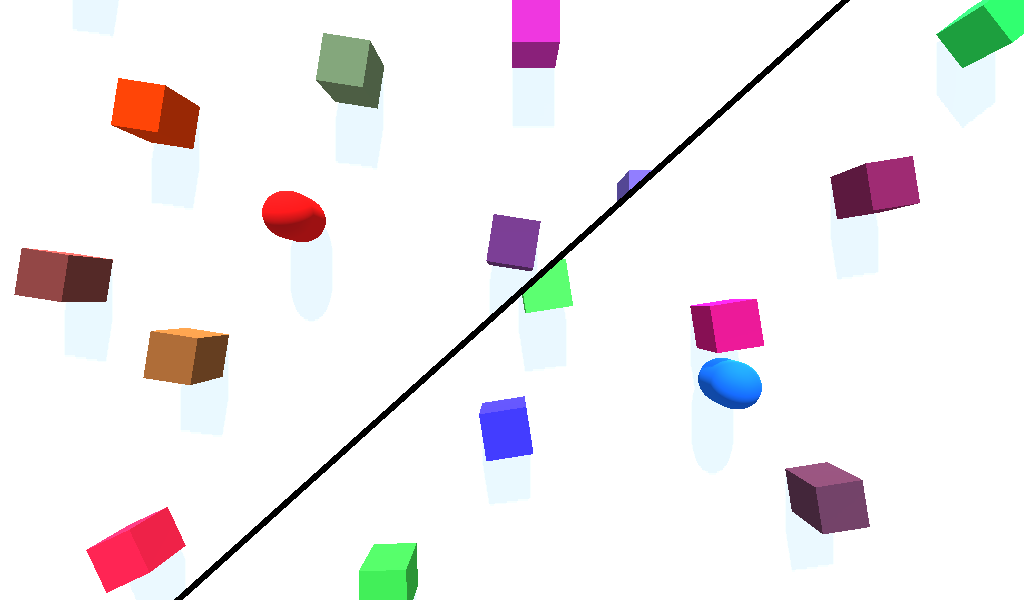| .. | ||
| screenshots | ||
| camera_controller.gd | ||
| default_env.tres | ||
| icon.png | ||
| icon.png.import | ||
| player.gd | ||
| project.pandemonium | ||
| README.md | ||
| split_screen.shader | ||
| split_screen.tscn | ||
| wall_coloring.gd | ||
Dynamic Split Screen
This sample project showcases an implementation of dynamic split screen, also called Voronoi split screen.
Language: GDSL and GDScript
Renderer: GLES 2
Note: An HTML5 export is testable here.
Check out this demo on the asset library: https://godotengine.org/asset-library/asset/541
Details
A dynamic split screen system displays a single screen when the two players are close but a splitted view when they move apart.
The splitting line can take any angle depending on the players' position, so it won't be either vertical or horizontal.
This system was popularized by the Lego videogames.
How it works
Two cameras are placed inside two separate viewports and their texture, as well as some other parameters, are passed to a shader attached to a TextureRect filling the whole screen.
The SplitScreen shader, with the help of the CameraController
script, chooses wich texture to display on each pixel to
achieve the effect.
The cameras are placed on the segment joining the two players, either in the middle if they're close enough or at a fixed distance otherwise.
How to use it
Open and launch the project inside the Godot engine and then you can use WASD keys to move the first player and IJKL keys to move the second one.
The Cameras node has parameters to tune the distance at
which the screen splits and also the width and color of
the splitting line.
